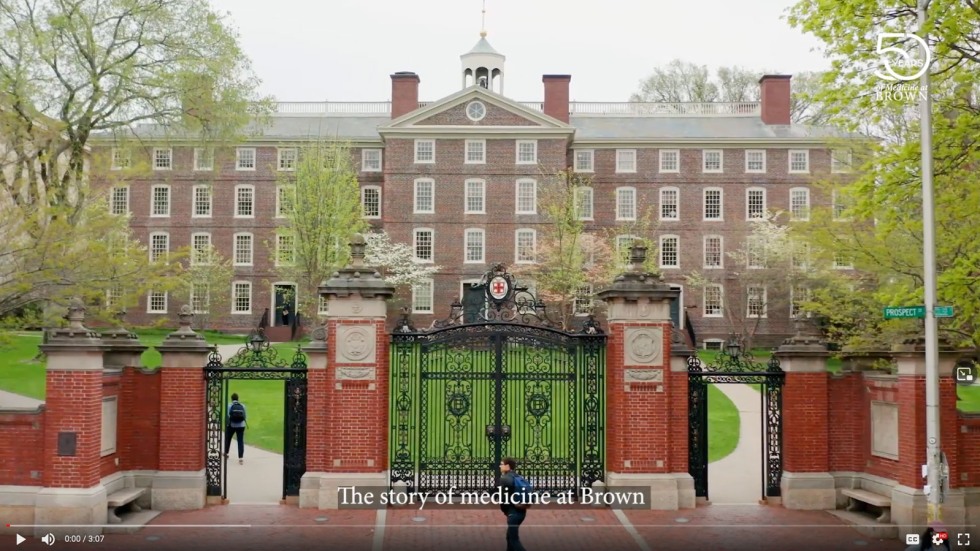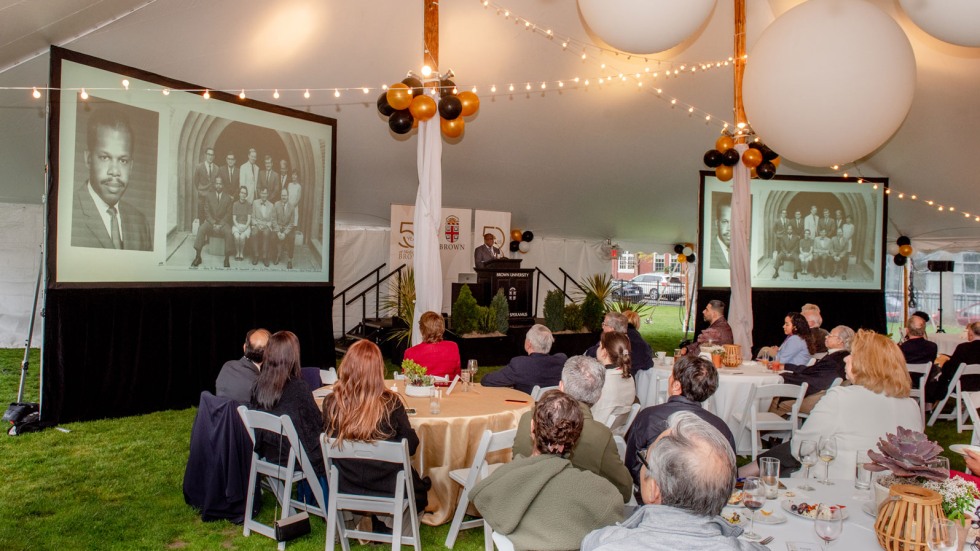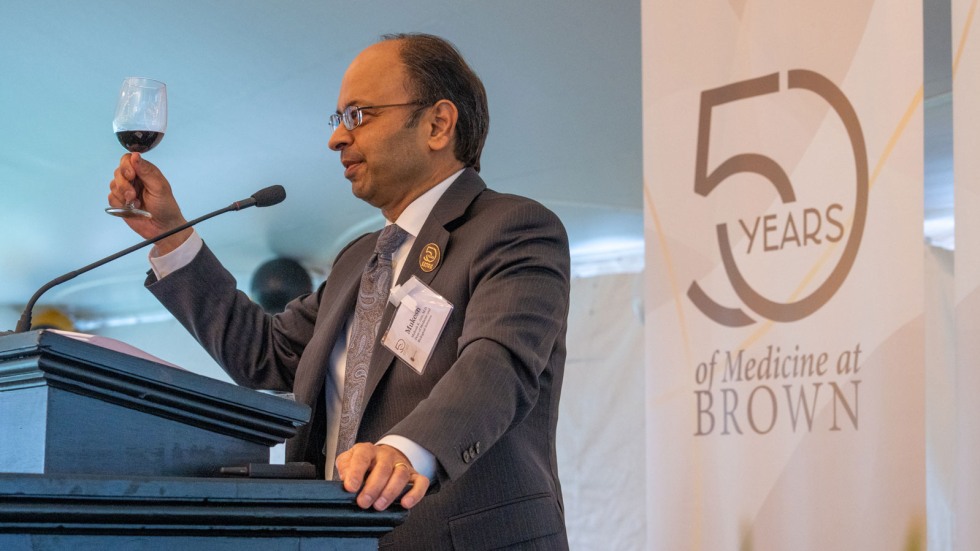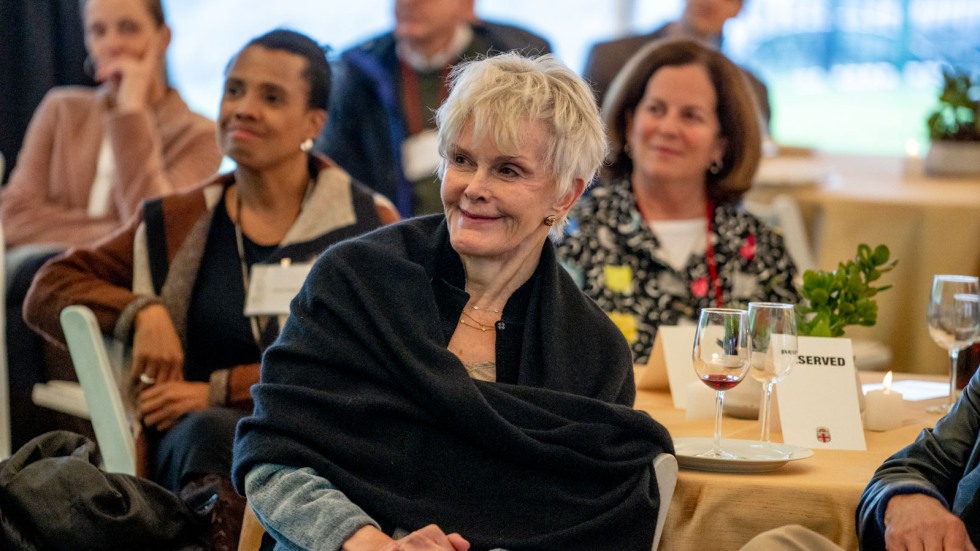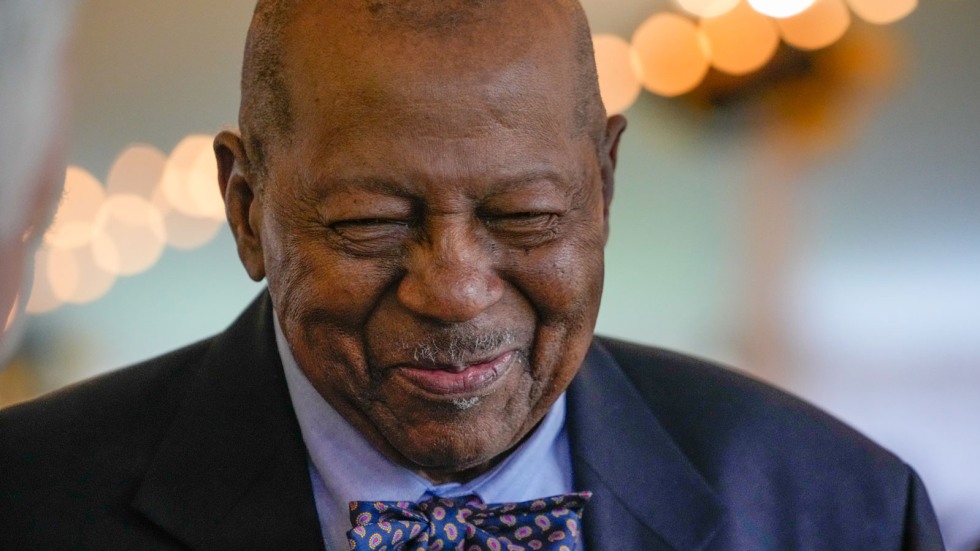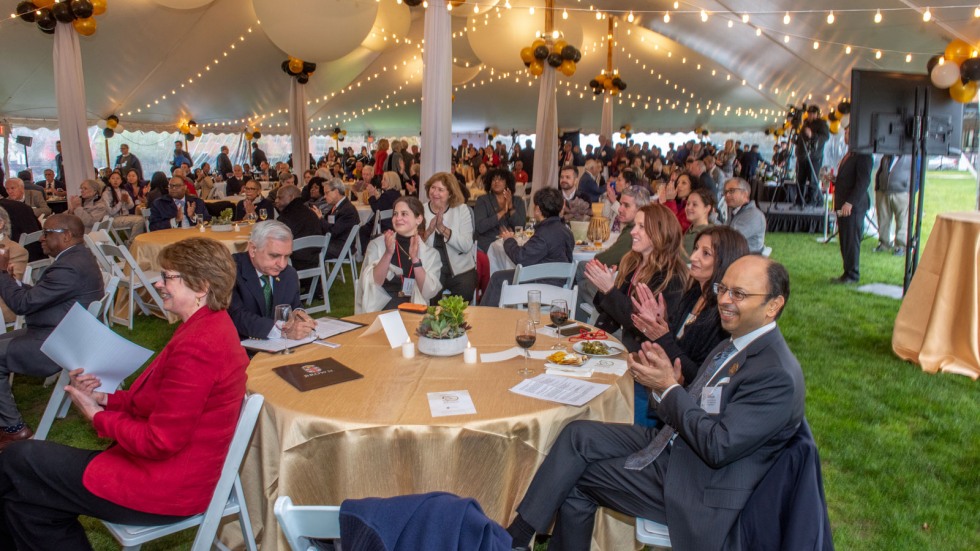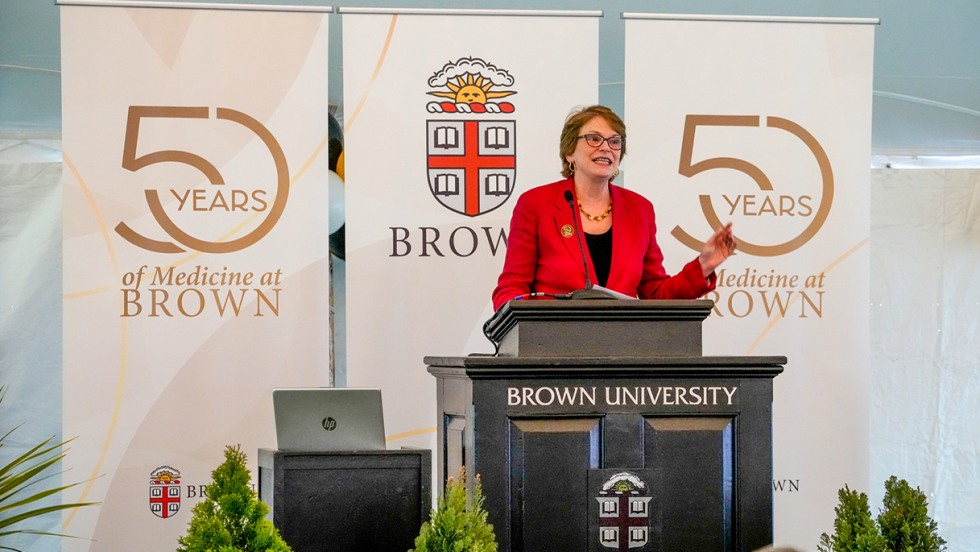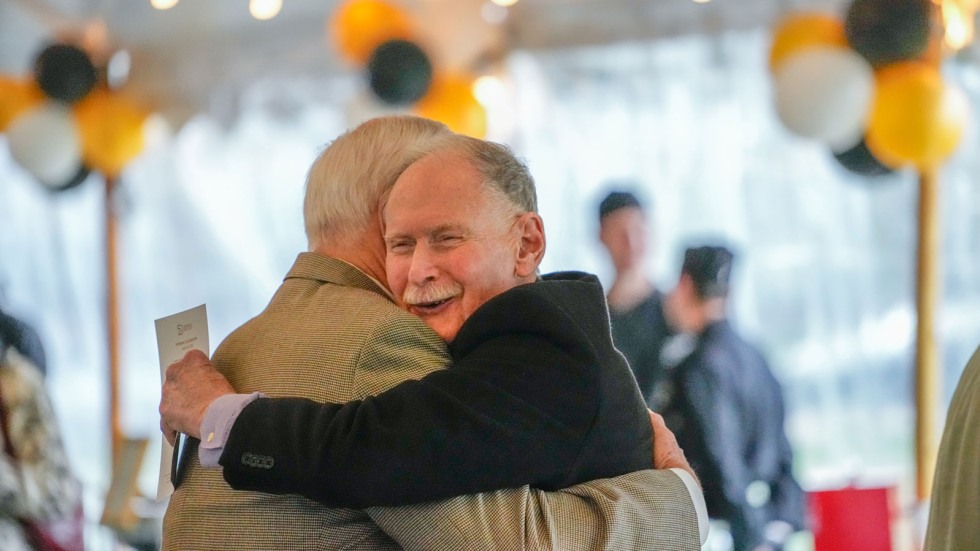PROVIDENCE, R.I. [Brown University] — “The present never tells us the whole story. We must acknowledge the past to define what the present and what the future will tell us.”
This was the advice of Dr. Jeffrey F. Hines, a 1986 graduate of the Warren Alpert Medical School, to the members of the medical school community gathered to commemorate a half century of Brown’s impact in medical education and research. Hines borrowed from Shakespeare's concept of "what's past is prologue" as he addressed hundreds of past and present students, faculty members and staff, as well as parents, friends and community partners.
The Friday, April 29, event — hosted by the University under a balloon-festooned tent on Pembroke Field — served as the Opening Celebration for 50 Years of Medicine at Brown, a 15-month series of celebratory, reflective and scholarly activities planned to honor distinctive and innovative elements of Brown’s approach to medical training and biomedical innovation.
Fifty years ago, in March 1972, the Corporation of Brown University approved the creation of a four-year medical education program, paving the way for Rhode Island’s first and only medical school. The celebration honors the decades of impact in medical education and research since, the contributions of the 3,893 physicians who have earned M.D.s from Brown and the innovative path ahead for the Warren Alpert Medical School.
The mood at the kickoff event was festive, like a family reunion, as medical school alumni (and soon-to-be alumni) and former colleagues from across the last five decades greeted each other joyfully and shared stories while sampling Providence-themed treats like Del’s Lemonade cupcakes and cannoli. Many elements of the Opening Celebration built on the school’s distinct approach, characterized by a unique focus on promoting the health of individuals and communities through service to society. Acknowledging the brave and selfless work of frontline health care providers during the COVID-19 pandemic was a theme throughout the evening — frontline workers were given white ribbons to wear in recognition of their service.
